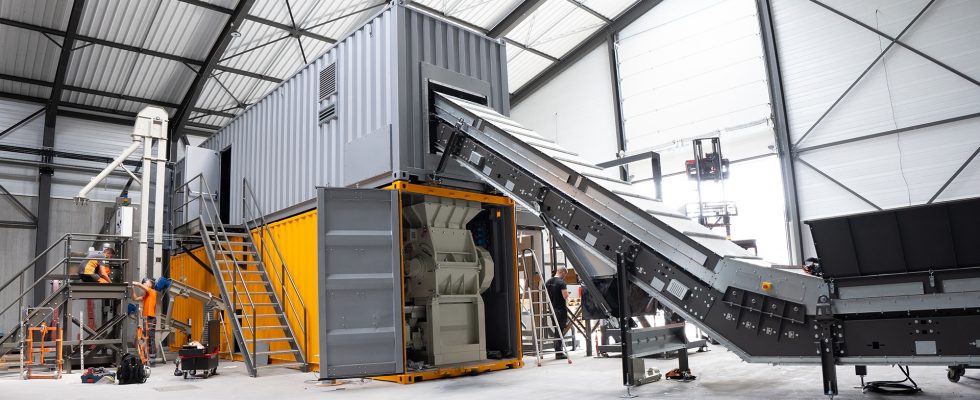Modern scrap dealers recover silver, platinum or palladium from industrial effluents or old catalytic converters. But the new gold rush is the recycling of lithium batteries, also filled with cobalt, nickel and manganese. These rare metals are increasingly appearing as a strategic commodity for electrical technologies, starting with cars.
All the mines in the world – which are not located in France or Europe – will not be able to support this, or at an unacceptable social and environmental price. For this reason, at the same time as ACC and Verkor are building the first battery gigafactories, the recycling sector is being established. To provide the industry with “mine quality” metals from the circular economy.
A selective extraction process
Technologies are progressing well. Several industrial consortia, around Orano, Solvay or Eramet, are working on chemical processes to separate the mixed metals which form the black mass dead batteries. Faced with these large groups, the Mecaware-Verkor start-up duo is developing an innovative selective extraction solution that is “more ecological and more efficient”, claims Arnaud Villers d’Arbouet, CEO of Mecaware. Up to 99.99% extraction rate and purity for certain metal salts. The Lyon-based company is preparing two industrial pilots: one for production waste (known as scraps) from the Verkor factory, the other for old batteries – from bicycles, scooters or telephones. Because, barring an accident, the first electric cars did not end up in the scrapyard.
But, before sorting the cobalt and lithium, the batteries must be dismantled. MTB, designer and manufacturer of waste deboning machines in Isère, has built a demonstrator to process waste scraps factories – first step before complete batteries. Grinding then extracting the solvents continuously, “it operates in a secure atmosphere, without oxygen, to combat the risk of fire,” specifies development director David Ravet.
Towards mechanization of dismantling
MTB also cooperates with Carester, which recovers rare earths in permanent magnets. This other pioneer completes fundraising of several hundred million euros for the construction of a factory in Lacq (Pyrénées-Atlantiques). Over the past two years, he has dissected 2,000 electric motors – from cars, drones, bicycles, pumps, wind turbines, etc. – to draw up “the complete technical-economic map of brands and models with a view to recycling”, explains its founder Frédéric Carencotte. He is studying with MTB the mechanization of dismantling to recover as many elements as possible, “more or less profitable”.
And in particular copper, which has become a critical material, alerts the French Observatory of Mineral Resources for Industrial Sectors (Ofremi), led by the BRGM. The red metal, essential for all electrical applications, and in large quantities, has a much higher voltage than manganese or lithium (only 1% of cars are electric). “We must quickly develop a recycling sector which makes it possible to obtain electronic grade copper,” urges Stéphane Bourg, director of Ofremi. This is not the case for metal recovered by scrap dealers, apart from a few exceptions such as WeeeCycling which refines it to 99.99%.
If the emergency is not yet on battery metals, it will come after 2035 and the end of the thermal engine. And, on this horizon, the “urban mine” would only represent 12% of needs, estimates the BRGM. “A growing technology cannot live on recycling,” he warns. The impossible quadrature of the circular economy…
